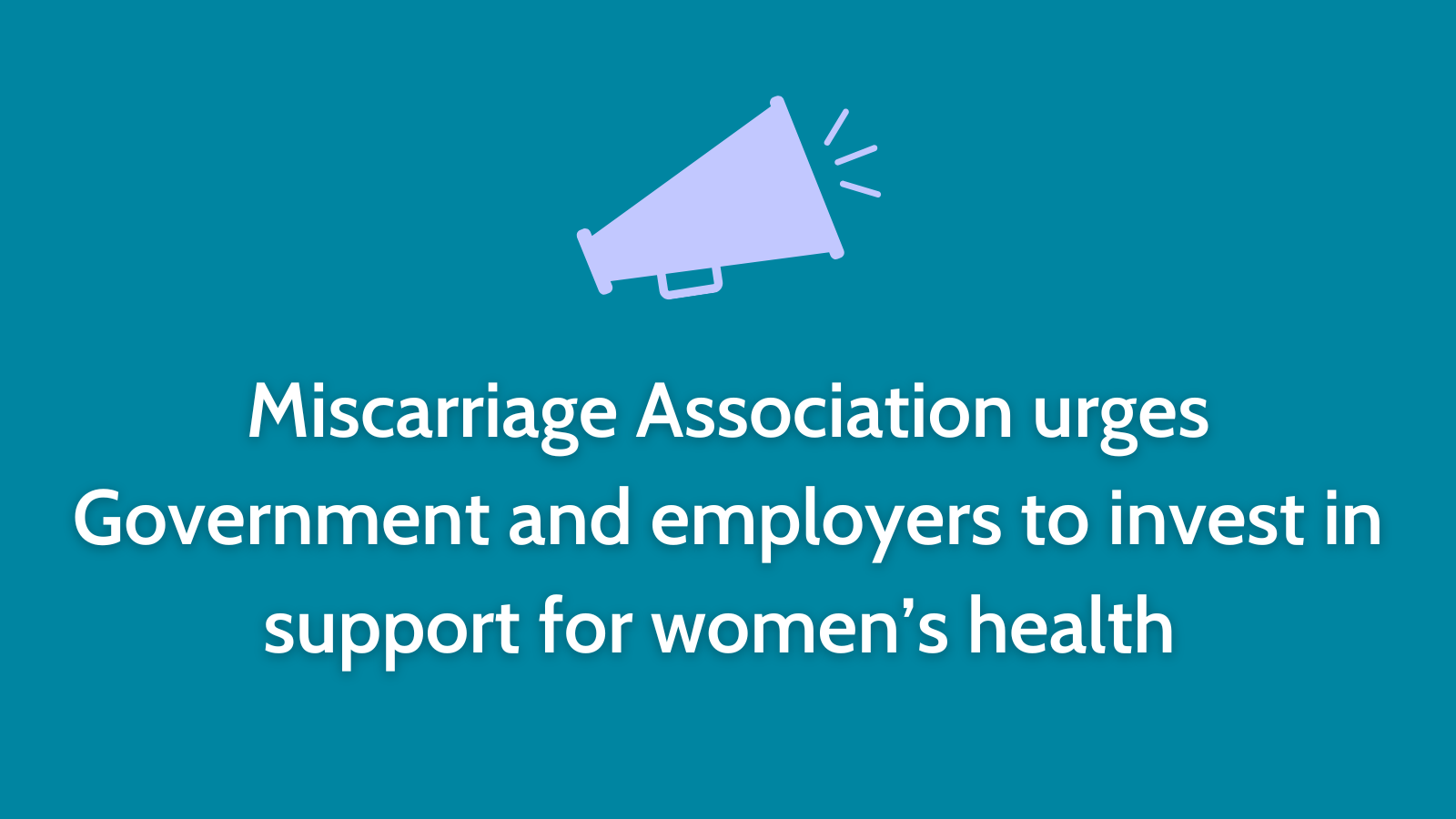Maternity Review fails to address miscarriage care
24th February 2016
Women who experience pregnancy loss before 24 weeks have been ignored by the national Maternity Review published yesterday. This is deeply disappointing and a missed opportunity to set standards for good, compassionate miscarriage[1] care.
The review sets out a five year forward view for improving outcomes of maternity services in England. While we welcome its call for safer, kinder and more personalised maternity services, it is dismaying to see that women affected by miscarriage, ectopic or molar pregnancy miss out on any detailed recommendations for their care.
Despite the Miscarriage Association being invited to participate, and contributing evidence to the review, experience of ‘maternity services’ appears to have been counted only after the first booking-in visit (usually at around 12 weeks of pregnancy). Even then there is barely any reference to miscarriage – the most common complication of pregnancy – and none at all to ectopic or molar pregnancy.
A small number of key points* within the section “What we heard from women and their families” would clearly be relevant to women who lose a baby at any stage of pregnancy, yet losses before 24 weeks are simply not mentioned. What’s more, many of these points are completely absent from the report’s recommendations; despite the reported concerns of women and their partners, the need for improved communication skills, empathy, support after loss and consideration of the place of care is notably lacking.
It is to be hoped that the Maternity Review does improve care for women and their babies. Without reference to miscarriage, ectopic pregnancy or molar pregnancy, however, it is highly unlikely to lead to improvement, in care for the thousands of women and families affected by pregnancy loss. It seems that we need to look to other organisations – notably the Association of Early Pregnancy Units and the Royal College of Obstetricians and Gynaecologists – as well as to like-minded charities, to create change and improvement for pre-24 week pregnancy care.
* Selected key points from the Review
Communication
(3.8) Many women told us about the importance of good quality and consistent communication and emphasised how vital it is for professionals to communicate with each other. There is widespread interest in using electronic records so that women would not have to explain their situation to every new healthcare professional they meet. Women wanted healthcare professionals to have read the notes before meeting with them. This is particularly important if they have had a stillbirth, miscarriage or experienced complications.
(3.11) Women who had experienced stillbirth consistently said that they wished they had been better informed about the risks, especially those symptoms they might have acted upon such as reduced fetal movements. Particularly during their first pregnancy, women found it difficult to know what signs to look out for. Parents said they wanted to be listened to and taken seriously when they expressed concerns about their baby. We heard from parents who had felt something was wrong with their baby, but when they raised their worries they were ignored or patronised, and no action was taken.
Care when a baby dies
(3.12) When a baby dies, nothing can take away the pain for the families, but we heard many accounts of kind, compassionate care that made the experience better and helped parents to create positive memories. On the other hand we heard too from families who said they were treated with a lack of care and kindness. Insensitive language and dismissive remarks lodged in parents’ minds, causing hurt and polluting memories of the often very short time they had with their baby.
When their baby had died, families said the environment where they were looked after made a big difference. Many parents told us they were made to share facilities on labour wards with those who had just given birth and therefore within earshot of crying new-borns, which greatly added to their trauma and distress. In contrast other families greatly appreciated being cared for in the privacy and calm of a bereavement suite.
(3.13) Parents told us that they would have liked more time to come to terms with their loss before having to leave the hospital, leave their baby, or decide what would happen to their baby. Many felt rushed through the process and not treated with the kindness and compassion that they needed.
[1] In this context, the term ‘miscarriage’ is taken to include miscarriage, ectopic pregnancy and molar pregnancy.

